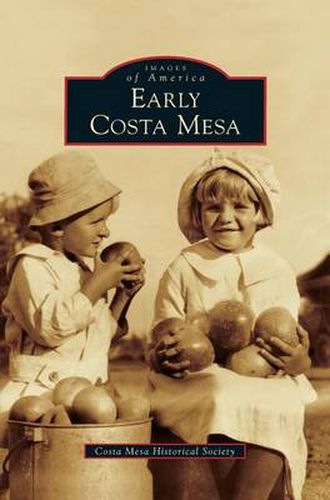Readings Newsletter
Become a Readings Member to make your shopping experience even easier.
Sign in or sign up for free!
You’re not far away from qualifying for FREE standard shipping within Australia
You’ve qualified for FREE standard shipping within Australia
The cart is loading…






This title is printed to order. This book may have been self-published. If so, we cannot guarantee the quality of the content. In the main most books will have gone through the editing process however some may not. We therefore suggest that you be aware of this before ordering this book. If in doubt check either the author or publisher’s details as we are unable to accept any returns unless they are faulty. Please contact us if you have any questions.
Three emerging communities from the partitioned Rancho Santiago de Santa Ana formed the improbable start for a city that would eventually proclaim itself the City of the Arts. These farming communities–Fairview, Paularino, and Harper–attracted families and businesspeople. Community leaders then took pragmatic steps to meet local needs such as schools, churches, and a water supply. Harper’s first land developer appealed to folks of modest means by advertising, You! Five Acres. By 1920, Harper needed a broader identity and a local businessman proposed a naming contest, offering a $25 prize. Costa Mesa, recognizing the area’s heritage and geography, reaped the reward. Eight years later, voters handily defeated the City of Santa Ana’s annexation attempt by a margin of five to one. The Great Depression, the 1933 Long Beach earthquake, and the 1938 Santa Ana River flood then besieged the fledgling community. Undaunted, Costa Mesa continued to grow. By 1939, the stage had been set for the postwar miracle that would become the modern city of Costa Mesa.
$9.00 standard shipping within Australia
FREE standard shipping within Australia for orders over $100.00
Express & International shipping calculated at checkout
This title is printed to order. This book may have been self-published. If so, we cannot guarantee the quality of the content. In the main most books will have gone through the editing process however some may not. We therefore suggest that you be aware of this before ordering this book. If in doubt check either the author or publisher’s details as we are unable to accept any returns unless they are faulty. Please contact us if you have any questions.
Three emerging communities from the partitioned Rancho Santiago de Santa Ana formed the improbable start for a city that would eventually proclaim itself the City of the Arts. These farming communities–Fairview, Paularino, and Harper–attracted families and businesspeople. Community leaders then took pragmatic steps to meet local needs such as schools, churches, and a water supply. Harper’s first land developer appealed to folks of modest means by advertising, You! Five Acres. By 1920, Harper needed a broader identity and a local businessman proposed a naming contest, offering a $25 prize. Costa Mesa, recognizing the area’s heritage and geography, reaped the reward. Eight years later, voters handily defeated the City of Santa Ana’s annexation attempt by a margin of five to one. The Great Depression, the 1933 Long Beach earthquake, and the 1938 Santa Ana River flood then besieged the fledgling community. Undaunted, Costa Mesa continued to grow. By 1939, the stage had been set for the postwar miracle that would become the modern city of Costa Mesa.